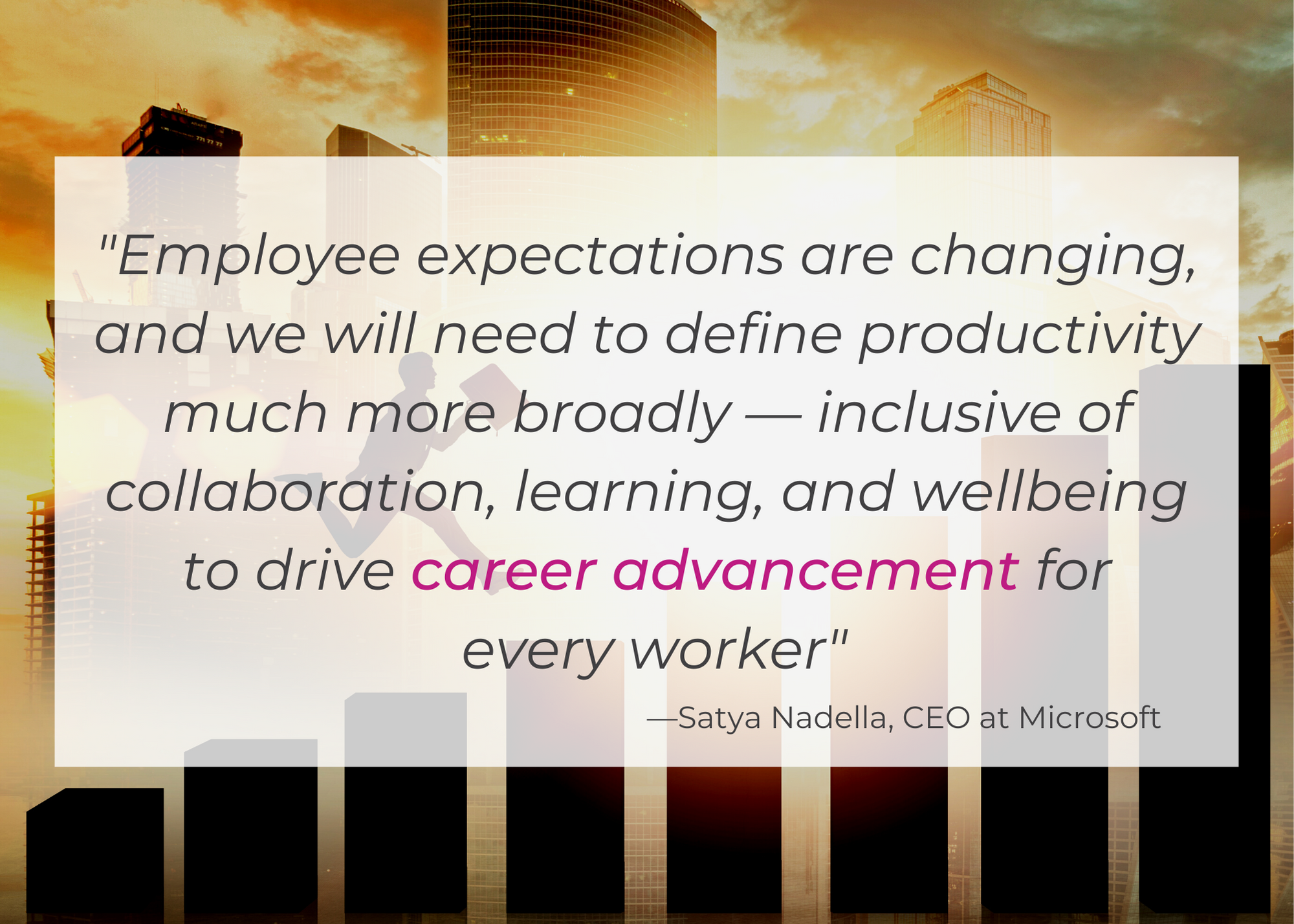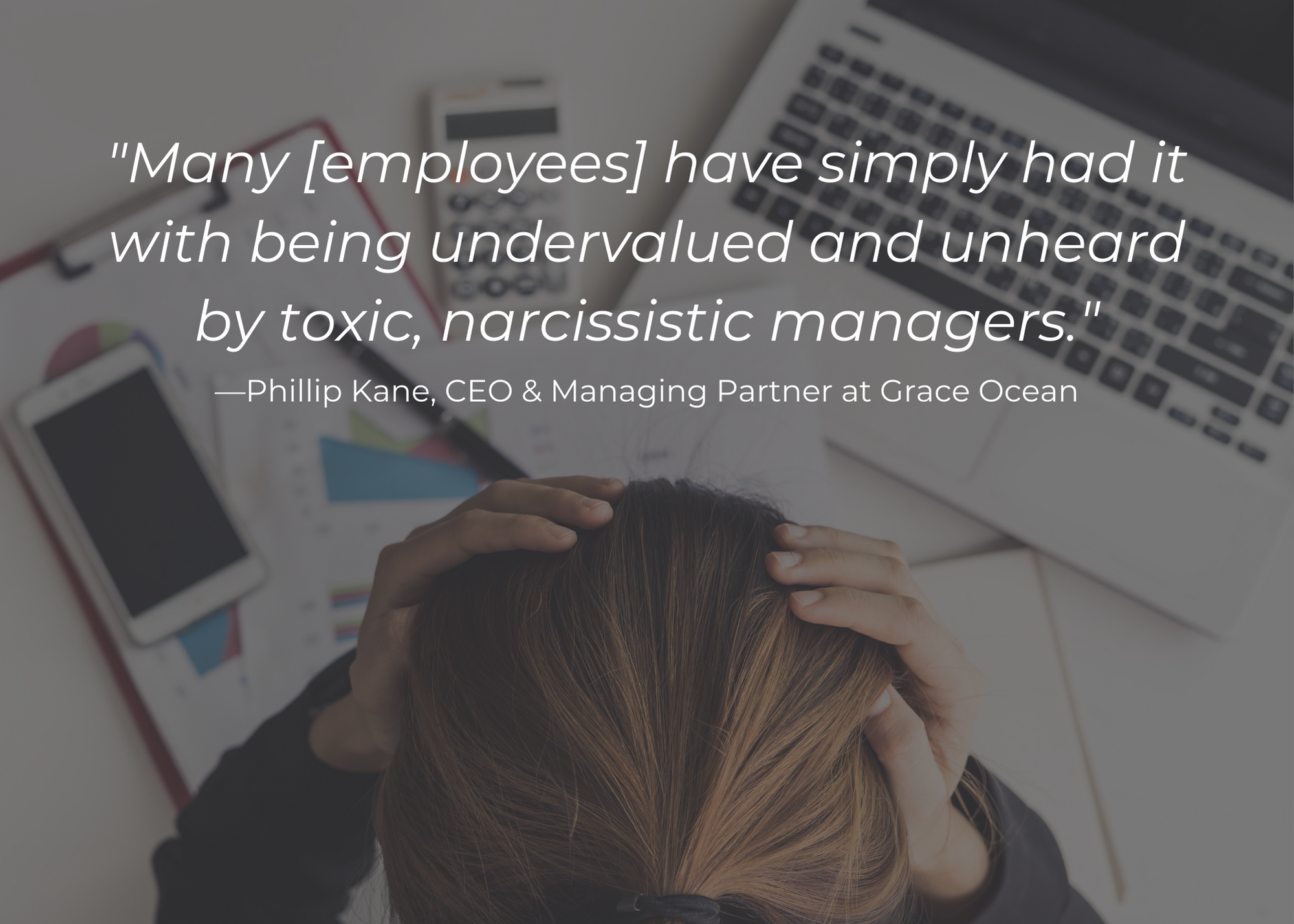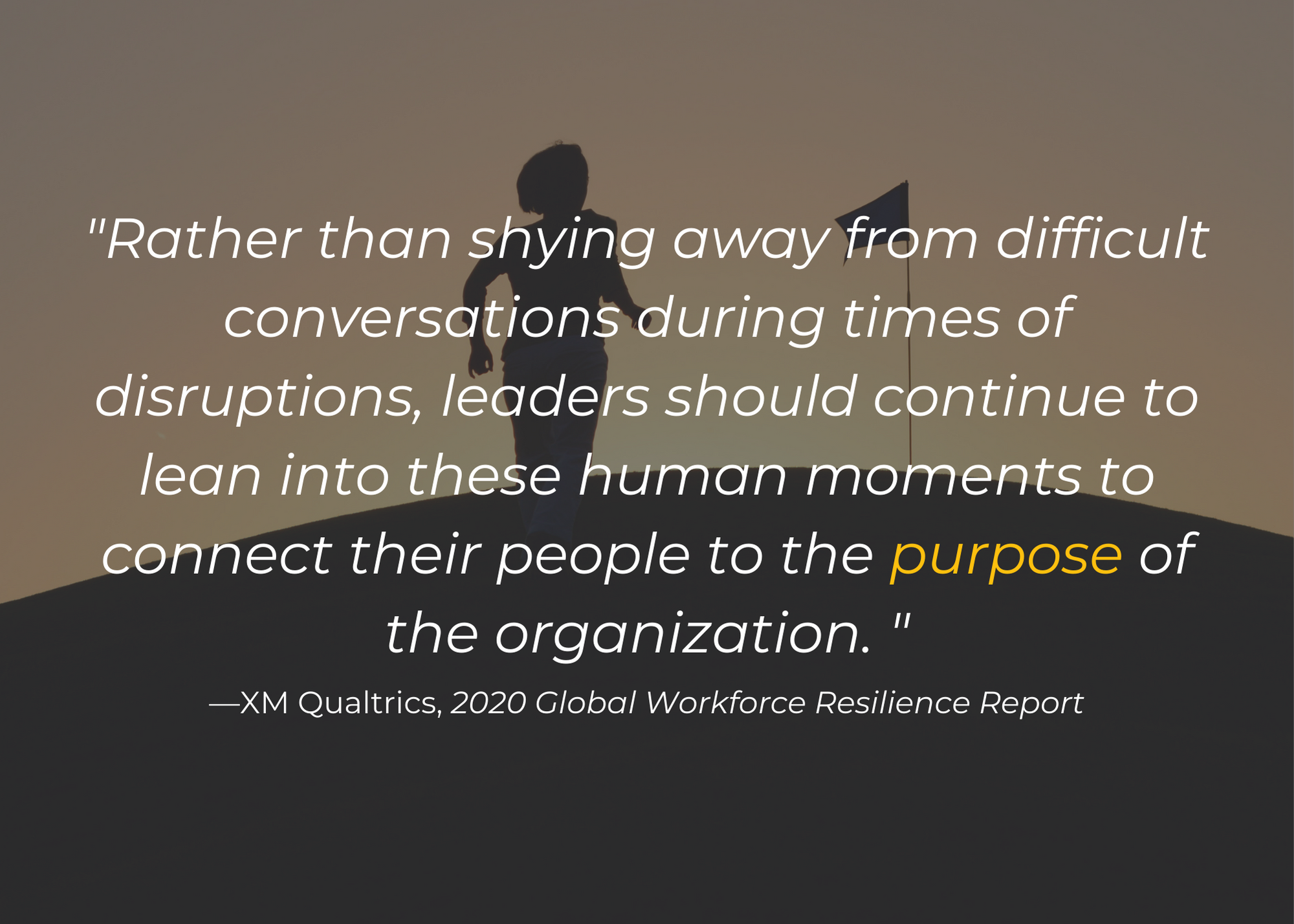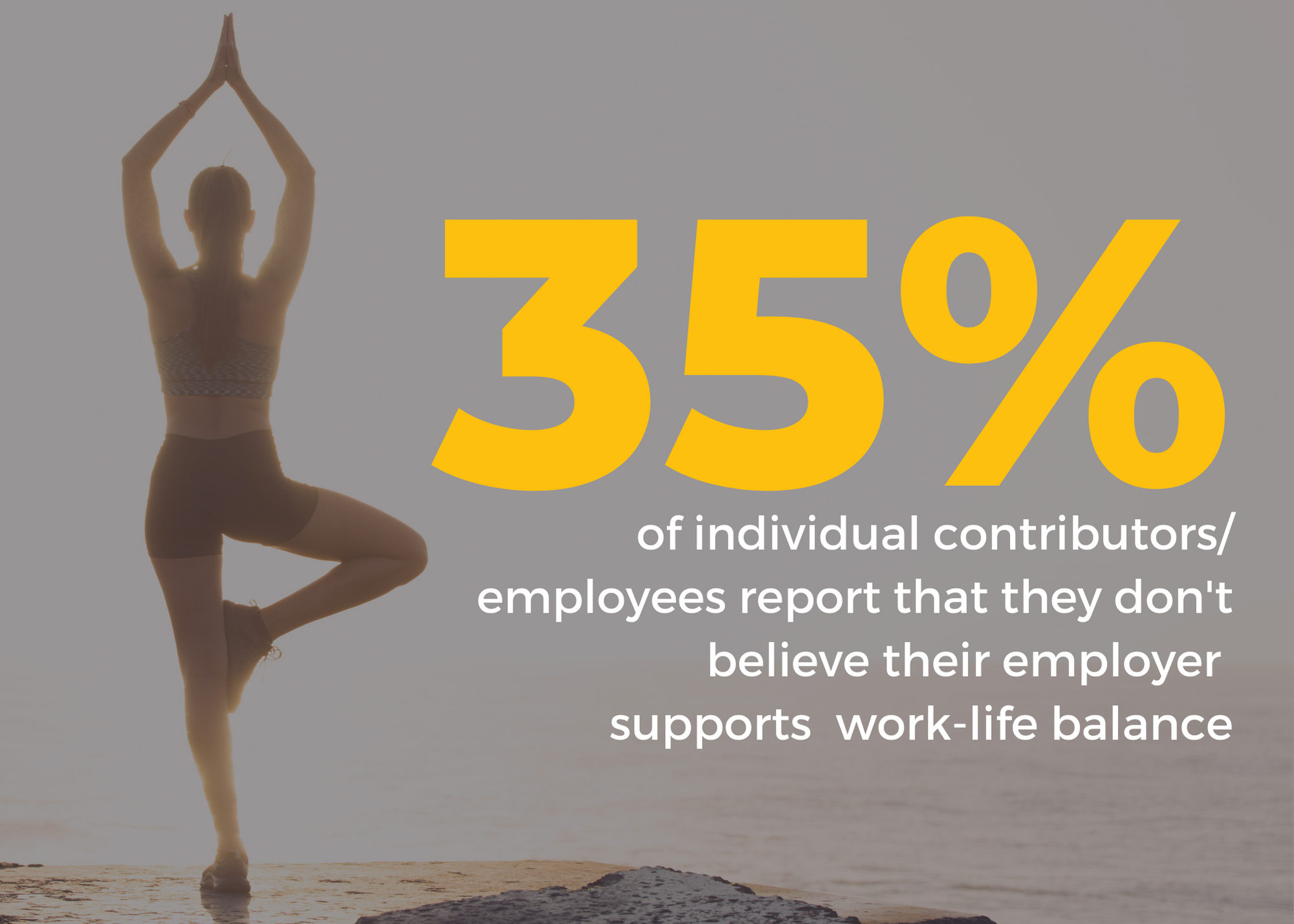4 min read
What's the ‘Great Resignation’ & How's it Impacting Sales & Marketing?
 Cameron Schulz
:
November 11, 2021 at 12:16 PM
Cameron Schulz
:
November 11, 2021 at 12:16 PM

The Great Resignation –
Although originally used to reference a potential elective workforce departure of monumental proportions, the Great Resignation is now a veritable event in which a record-breaking number of American workers are willfully ‘resigning’ or—to put it more bluntly—outright quitting their jobs.
Typical motives for quitting, like better pay or greater benefits are at play, of course, but those studying this movement are finding that its most significant driving forces are more personal in nature. As the originator of the term, Anthony Klotz, stated in an interview, the pandemic provided people with “. . . the time and the motivation to sit back and say, do I like the trajectory of my life? Am I pursuing a life that brings me well-being?”
To state the obvious, the majority vote was a big fat NO.
However, to truly understand the movement, one most first further investigate what contributes to ‘trajectory’ and ‘well-being’. Fortunately, several studies of the workforce have done just that.
Contributing Factors -
 Source: Microsoft
Source: Microsoft
Lack of Growth Opportunities: Opportunities to grow—whether through learning new skills or earning promotions—incentivize employees to become further invested in their current position as a means of working towards something more. When businesses neglect to provide those opportunities, employees are less motivated to remain loyal and, subsequently, become increasingly curious about outside opportunities—making them more susceptible to offers from other employers.
 Source: Inc.
Source: Inc.
Feeling Undervalued: Insufficient opportunities can also be perceived as an indication that the employer doesn’t believe their employees are worth investing in. Unchecked, that perception may lead employees to feel insignificant and undervalued. Employees that feel expendable are more inclined to act expendable and consider alternative employment where their skills can be utilized to a fuller extent and better recognized for their contribution to the business.
 Source: XM Qualtrics
Source: XM Qualtrics
Purposelessness: As unfavorable conditions tend to snowball, undervalued and stagnant employees may also begin to experience a sense of purposelessness. When their purpose in the business becomes unclear, it’s more likely for employees to question their allegiance to their employer and become unsatisfied in their current position. This provokes them to search for purpose in a new position or even a different career path that will leave them more accomplished and fulfilled at the end of the day.
 Source: XM Qualtrics
Source: XM Qualtrics
Poor Work-Life Balance: The concept of work-life balance is far from new, yet it’s possibly more relevant than ever. Many employees are still working from home and still struggling to pin down that elusive line between work life and home life. Furthermore, the pressure to perform better and deliver more has only been amplified in an effort to recover from the setbacks caused by the pandemic. Whether experienced individually or in tandem, these challenges produce an environment where work heavily outweighs life in the balances.
 Source: Microsoft
Source: Microsoft
Lack of Flexibility: Although there has been an uptick in flexible work conditions, there’s still a significant portion of the workforce that’s employed on the stricter more rigid side of the work spectrum. Work from home may be challenging for some, but for others flexible work hours and remote offices are a better fit for their personal and professional lives. If their current employer isn’t willing to even consider the option to work remotely, chances are they can find one who is.
 Source: XM Qualtrics
Source: XM Qualtrics
Burnout: The last couple of years have been challenging to say the least. Employees everywhere are experiencing severe burnout—many for the second or even third time since the beginning of the pandemic—due to constant and unexpected changes. Those who haven’t quit (yet, anyway) are even more susceptible to burnout after picking up the slack left by those who have. Even the most dedicated employees will consider looking for other employment if it has the potential to relieve their fatigue, even temporarily.
How is the Great Resignation Impacting Marketing & Sales Teams?
Marketing and sales teams are just as susceptible to the factors contributing to the Great Resignation as any other profession. In fact, they may be even more susceptible due to lingering restricted budgets that continue to prevent many businesses from committing to making purchases. The pressure for marketing and sales to perform has been continuously mounting and the research above suggests—they’ve either waved their white flags in surrender or are preparing to do so. Source: Hays Recruiting experts worldwide & Xactly
Marketers seem to be particularly affected by the lack of growth opportunities and purpose, and, although marketing employers have made great strides in supporting work-life balance, it continues to be a key factor for marketers who are considering a new role.
 Source: Hays Recruiting experts worldwide
Source: Hays Recruiting experts worldwide
Sales representatives, on the other hand, appear to be using the great resignation as an opportunity to take a stand against grievances that have plagued the profession long before the pandemic hit. Sales leadership, researchers, and employees themselves have ranked stress-levels, schedule flexibility, work-life balance, and overall job satisfaction as sub-par without the additional strain of ‘unprecedented times.’ Now, with a movement to support the rejection of such conditions regardless of profession, sales representatives are empowered to demand better from their employers or take their skills elsewhere.
 Source: US News & Career Explorer
Source: US News & Career Explorer
Retain Your Marketing & Sales Teams with Triptych –
To keep your marketing and sales teams intact or make the most of teams that are leaner than usual without further contributing to burnout, you have to address the root causes driving the Great Resignation movement.
With Triptych, marketing and sales leaders keep their employees in tune with their true purpose within the organization and combat burnout by automating tedious administrative tasks that inflate individual workloads—magnifying daily pressure and stress—and draw time away from business-critical activities.
Furthermore, as a cloud-based platform, Triptych is accessible from anywhere. This feature allows leaders to provide their marketing and sales teams with greater workplace flexibility without creating dissonance between the two teams by enabling the two teams to work within the same platform.
Finally, Triptych allows marketing teams to scale by 10x which means that even with a marketing team that’s lighter than usual, you can still offer support for your entire sales force without having to hire additional full-time marketing employees and without losing productivity.

What’s the future of sales support in a sales-driven organization?
“Never take your eyes off the cash flow because it’s the lifeblood of business.”—Sir Richard Branson Cashflow matters. In fact, it’s one of the ...

Lora's Take: Mastering Open Enrollment Readiness
Open enrollment season is a critical period for healthcare companies, requiring meticulous planning and execution. With years of experience working...





